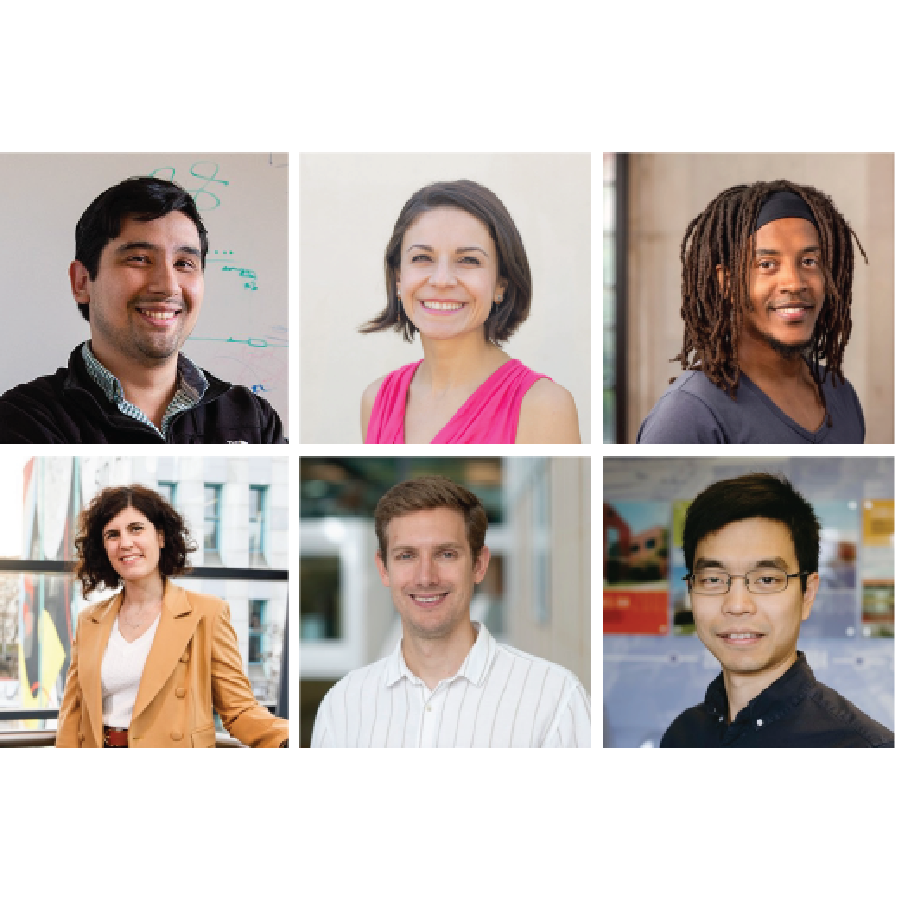
Six New Vallee Scholars
Six new Vallee Scholars have just been appointed in this our 12th year of providing unrestricted funding for national and international early career researchers at a critical stage in their tenure-track careers. The Vallee Foundation has provided more than $18 million in funds to support 59 outstanding scientists since 2013. We are delighted to welcome the following researchers to the Vallee community and look forward to their future discoveries.
Jason Buenrostro, PhD, Harvard University: Modularly-designed synthetic transcription factors for engineering cellular fates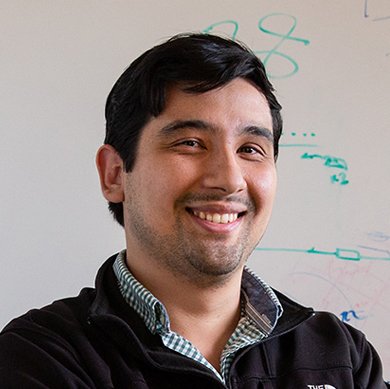 Jason Buenrostro is a cellular and molecular biologist focused on understanding the mechanisms that regulate gene expression. He has pioneered several technologies that provide deeper insights into how and when genes are expressed. Among these technologies, Buenrostro developed ATAC-seq and single-cell ATAC-seq, methods that identify regions of chromatin accessibility in rare cell types or across single-cells. Jason received his PhD in Genetics from Stanford University and completed an early independence fellowship as a Junior Fellow at the Harvard Society of Fellows and a Broad Institute Fellow. Currently, he is the Alvin and Esta Star Associate Professor of Stem Cell and Regenerative Biology at Harvard University and an Institute Member of the Broad Institute. He has earned numerous accolades, including the NIH Director’s New Innovator Award, the Allen Distinguished Investigator Award, and has been named one of MIT Technology Review's “35 Innovators Under 35."
Jason Buenrostro is a cellular and molecular biologist focused on understanding the mechanisms that regulate gene expression. He has pioneered several technologies that provide deeper insights into how and when genes are expressed. Among these technologies, Buenrostro developed ATAC-seq and single-cell ATAC-seq, methods that identify regions of chromatin accessibility in rare cell types or across single-cells. Jason received his PhD in Genetics from Stanford University and completed an early independence fellowship as a Junior Fellow at the Harvard Society of Fellows and a Broad Institute Fellow. Currently, he is the Alvin and Esta Star Associate Professor of Stem Cell and Regenerative Biology at Harvard University and an Institute Member of the Broad Institute. He has earned numerous accolades, including the NIH Director’s New Innovator Award, the Allen Distinguished Investigator Award, and has been named one of MIT Technology Review's “35 Innovators Under 35."
Laura DeNardo, PhD, University of California, Los Angeles: Impact of early life adversity on limbic system developmental trajectories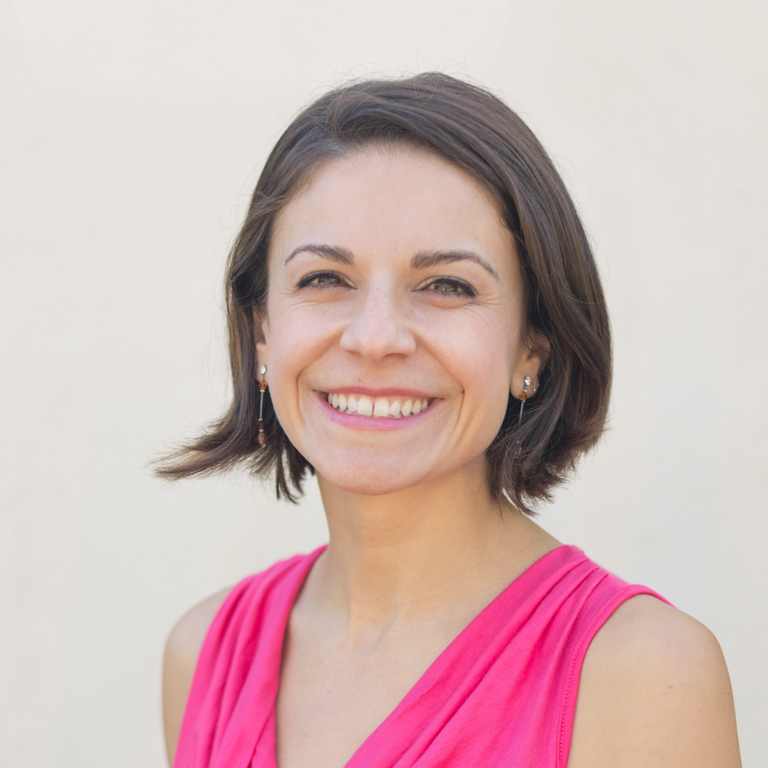 Laura DeNardo is an Assistant Professor in the Department of Physiology at UCLA where her lab brings together fields of synaptic development, behavioral circuit mapping, and early life stress to investigate the normal developmental trajectories in brain centers for emotion and cognition and how these trajectories are affected by early life stress. She is using advanced approaches in systems neuroscience to reveal the brain developmental mechanisms by which early life stress may lead to altered cognitive and emotional behaviors. Laura received her PhD in Neuroscience from the University of California, San Diego, and completed her postdoctoral training at Stanford University with Dr Liqun Luo. Laura has received several prestigious awards including a Klingenstein-Simons Fellowship in Neuroscience and a Janett Rosenberg Trubatch Career Development Award from the Society for Neuroscience.
Laura DeNardo is an Assistant Professor in the Department of Physiology at UCLA where her lab brings together fields of synaptic development, behavioral circuit mapping, and early life stress to investigate the normal developmental trajectories in brain centers for emotion and cognition and how these trajectories are affected by early life stress. She is using advanced approaches in systems neuroscience to reveal the brain developmental mechanisms by which early life stress may lead to altered cognitive and emotional behaviors. Laura received her PhD in Neuroscience from the University of California, San Diego, and completed her postdoctoral training at Stanford University with Dr Liqun Luo. Laura has received several prestigious awards including a Klingenstein-Simons Fellowship in Neuroscience and a Janett Rosenberg Trubatch Career Development Award from the Society for Neuroscience.
Binyam Mogessie, PhD, Yale University: Deciphering chromosome segregation in mammalian eggs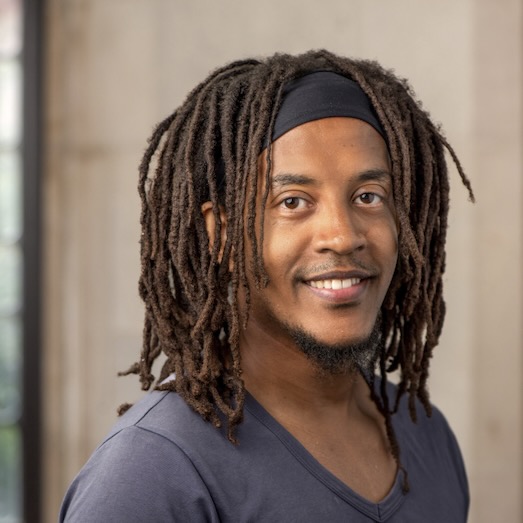 Binyam Mogessie is an Assistant Professor in the Department of Molecular, Cellular and Developmental Biology and Department of Obstetrics, Gynecology, and Reproductive Sciences at Yale University. There, he studies cellular processes that generate fertilizable eggs in an effort to understand the causes of chromosomal abnormalities in eggs and to innovate technologies for extending female reproductive lifespan. After earning his PhD in cell biology from the University of London, Binyam joined the MRC-LMB in Cambridge (and later at the Max Planck Institute in Göttingen, Germany), where he discovered a function of the actin cytoskeleton in accurate chromosome segregation during female meiosis. In 2019, Binyam established his independent research laboratory as a Wellcome Trust and Royal Society Sir Henry Dale fellow and HFSP Young Investigator at the University of Bristol. He joined the Yale MCDB faculty in July 2022 where his lab continues mechanistic cell biology studies of female meiosis and reproductive longevity.
Binyam Mogessie is an Assistant Professor in the Department of Molecular, Cellular and Developmental Biology and Department of Obstetrics, Gynecology, and Reproductive Sciences at Yale University. There, he studies cellular processes that generate fertilizable eggs in an effort to understand the causes of chromosomal abnormalities in eggs and to innovate technologies for extending female reproductive lifespan. After earning his PhD in cell biology from the University of London, Binyam joined the MRC-LMB in Cambridge (and later at the Max Planck Institute in Göttingen, Germany), where he discovered a function of the actin cytoskeleton in accurate chromosome segregation during female meiosis. In 2019, Binyam established his independent research laboratory as a Wellcome Trust and Royal Society Sir Henry Dale fellow and HFSP Young Investigator at the University of Bristol. He joined the Yale MCDB faculty in July 2022 where his lab continues mechanistic cell biology studies of female meiosis and reproductive longevity.
Irma Querques, PhD, University of Vienna: Site-specific integrating vectors for gene therapy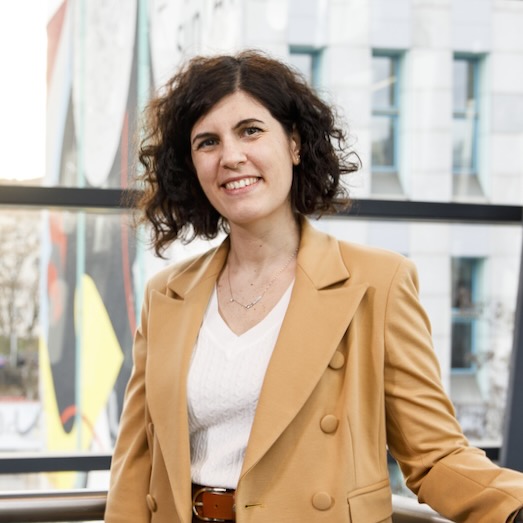 Irma Querques is an Assistant Professor and Group Leader at the University of Vienna and Max Perutz Labs where she is investigating the molecular mechanisms governing transposon movement. By driving genetic variation and facilitating interspecies gene transfer, transposons play a crucial role in shaping the biology and evolution of organisms. Integrating transposon biology with genome engineering offers a unique opportunity to enhance the diversity, precision, and efficacy of genetic modifications, with significant implications for biotechnology, medicine, and synthetic biology. Irma earned her PhD at the European Molecular Biology Laboratory in Heidelberg working on eukaryotic transposons in Dr Orsolya Barabas's lab. Following her doctoral research, she joined Prof Martin Jinek’s group at the University of Zurich to investigate CRISPR-guided transposons. She was recently awarded a starting grant from the European Research Council (2023) and is a finalist for the Eppendorf Award for Young European Investigators 2024.
Irma Querques is an Assistant Professor and Group Leader at the University of Vienna and Max Perutz Labs where she is investigating the molecular mechanisms governing transposon movement. By driving genetic variation and facilitating interspecies gene transfer, transposons play a crucial role in shaping the biology and evolution of organisms. Integrating transposon biology with genome engineering offers a unique opportunity to enhance the diversity, precision, and efficacy of genetic modifications, with significant implications for biotechnology, medicine, and synthetic biology. Irma earned her PhD at the European Molecular Biology Laboratory in Heidelberg working on eukaryotic transposons in Dr Orsolya Barabas's lab. Following her doctoral research, she joined Prof Martin Jinek’s group at the University of Zurich to investigate CRISPR-guided transposons. She was recently awarded a starting grant from the European Research Council (2023) and is a finalist for the Eppendorf Award for Young European Investigators 2024.
Benjamin Ryskeldi-Falcon, PhD, MRC Laboratory of Molecular Biology: Molecular mechanisms of pathological protein assemby in neurodegenerative diseases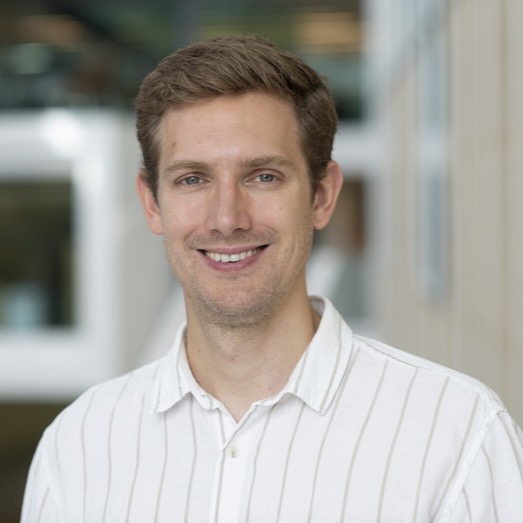 Benjamin Ryskeldi-Falcon is a Group Leader at the MRC Laboratory of Molecular Biology (LMB) in Cambridge, UK. He takes a structural cell biology approach to focus on the molecular mechanisms of the pathological assembly of RNA-binding proteins, which underlie multiple neurodegenerative diseases. He received his PhD in molecular biology from the University of Cambridge and subsequently carried out a postdoc with Michel Goedert and Sjors Scheres at the LMB, where he helped to determine the electron cryo-microscopy (cryo-EM) structures of assembled tau in neurodegenerative diseases. For his research, Benjamin was awarded the Alzheimer’s Research UK Rising Star Award, the Breuer Foundation Alzheimer’s Research Award and the SCOR Young European Researcher Prize. He was elected to the European Molecular Biology Organisation (EMBO) Young Investigator Programme in 2022.
Benjamin Ryskeldi-Falcon is a Group Leader at the MRC Laboratory of Molecular Biology (LMB) in Cambridge, UK. He takes a structural cell biology approach to focus on the molecular mechanisms of the pathological assembly of RNA-binding proteins, which underlie multiple neurodegenerative diseases. He received his PhD in molecular biology from the University of Cambridge and subsequently carried out a postdoc with Michel Goedert and Sjors Scheres at the LMB, where he helped to determine the electron cryo-microscopy (cryo-EM) structures of assembled tau in neurodegenerative diseases. For his research, Benjamin was awarded the Alzheimer’s Research UK Rising Star Award, the Breuer Foundation Alzheimer’s Research Award and the SCOR Young European Researcher Prize. He was elected to the European Molecular Biology Organisation (EMBO) Young Investigator Programme in 2022.
Nicholas Wu, PhD, University of Illinois at Urbana Champaign: Defining the first principles of antigenicity.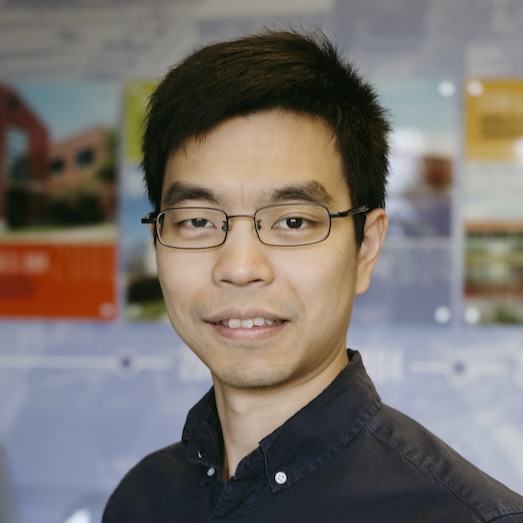 Nicholas Wu is an Assistant Professor of Biochemistry at the University of Illinois at Urbana-Champaign where his research focuses on virus-antibody interactions using a combination of high-throughput screening, structural biology, and machine learning approaches. The long-term goal is to understand the sequence-function relationship of antibodies and leverage this information for vaccine design and antibody engineering. Nicholas received his PhD in Molecular Biology from UCLA in 2015. He completed his postdoctoral training at the Scripps Research as a Croucher Fellow. His research has been recognized by multiple awards, including the NIH New Innovator Award, the Searle Scholar Award, and the Michelson Prize for Human Immunology and Vaccine Research.
Nicholas Wu is an Assistant Professor of Biochemistry at the University of Illinois at Urbana-Champaign where his research focuses on virus-antibody interactions using a combination of high-throughput screening, structural biology, and machine learning approaches. The long-term goal is to understand the sequence-function relationship of antibodies and leverage this information for vaccine design and antibody engineering. Nicholas received his PhD in Molecular Biology from UCLA in 2015. He completed his postdoctoral training at the Scripps Research as a Croucher Fellow. His research has been recognized by multiple awards, including the NIH New Innovator Award, the Searle Scholar Award, and the Michelson Prize for Human Immunology and Vaccine Research.
About the Vallee Scholar Awards
Recognizing that outstanding, young, independent investigators are the source for future advances in the biomedical sciences and of their need for flexible, unrestricted funding to conduct their research, the Vallee Scholars program makes grants of $340,000 – to be spent over a period of four years - to junior faculty carrying out basic biomedical research. This award is available only to investigators who have been nominated by institutions that have been selected by the Vallee Foundation Board of Directors. One nomination will be accepted per institution. The candidate must have received his/her PhD, MD, or other professional degree, within twelve years of the application deadline and, by the same date, have been in an independent research position (tenure track or equivalent) for six years or fewer.
For more information:
Contact Alexa M Mason, Executive Director at amason@thevalleefoundation.org